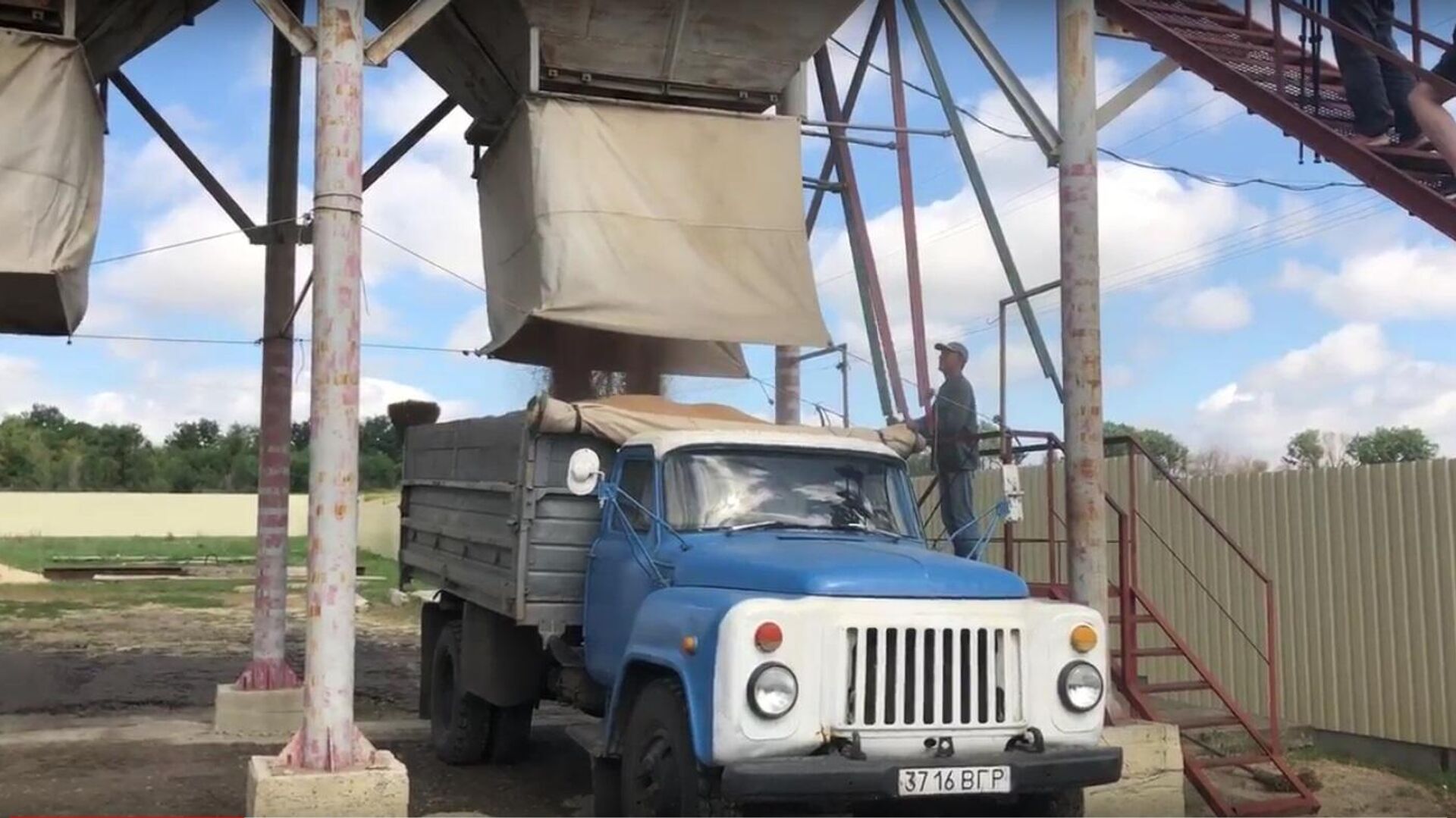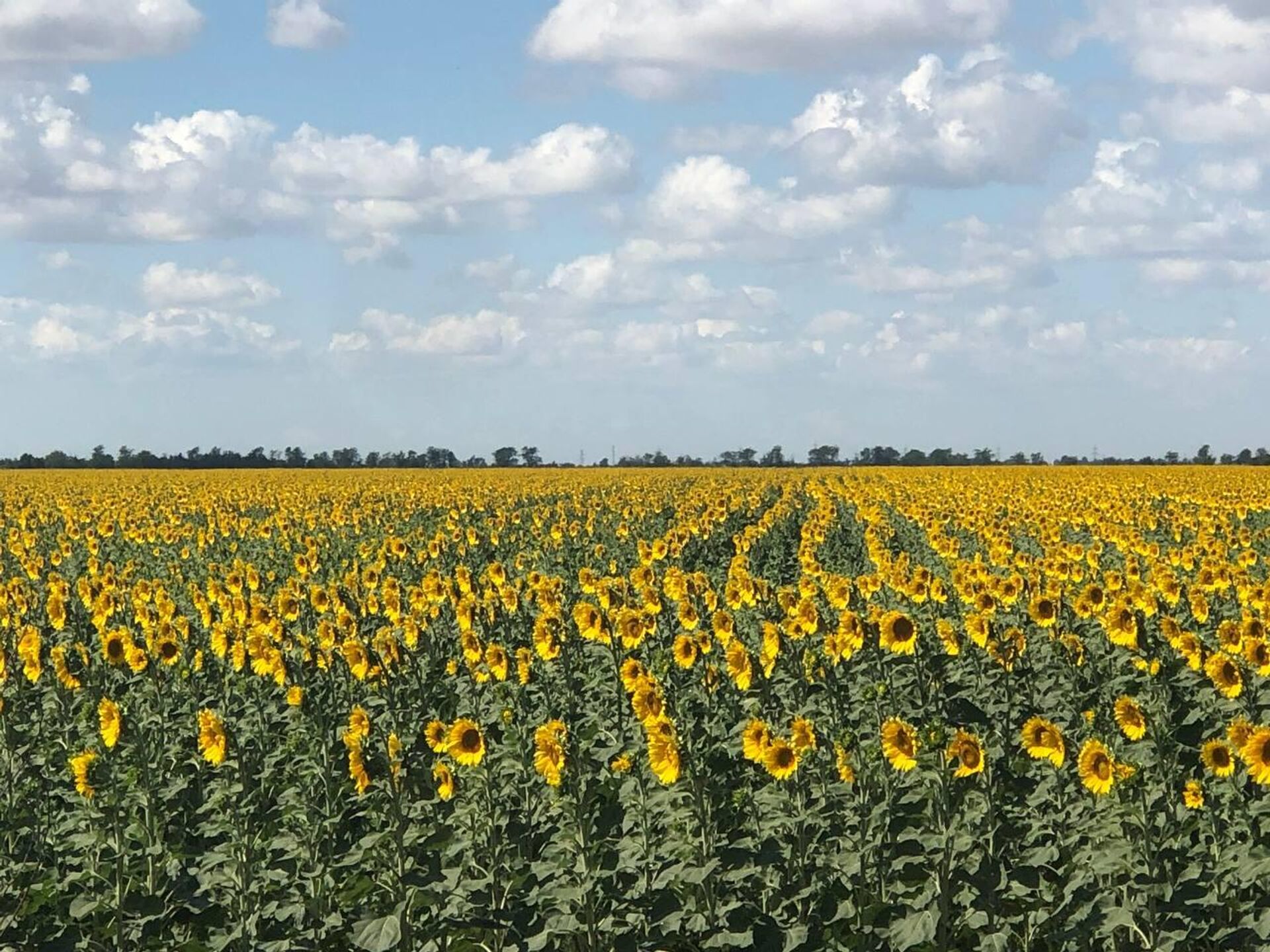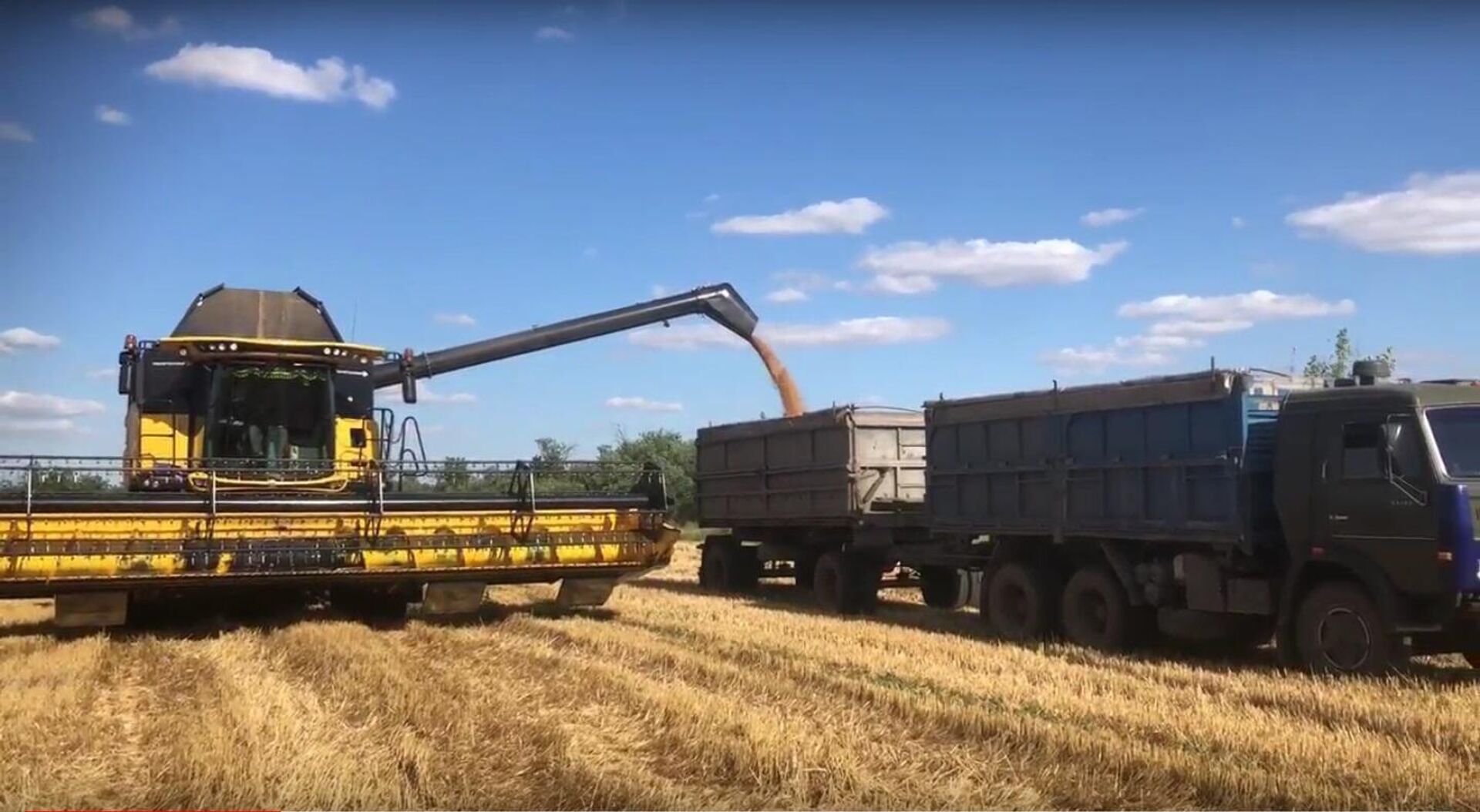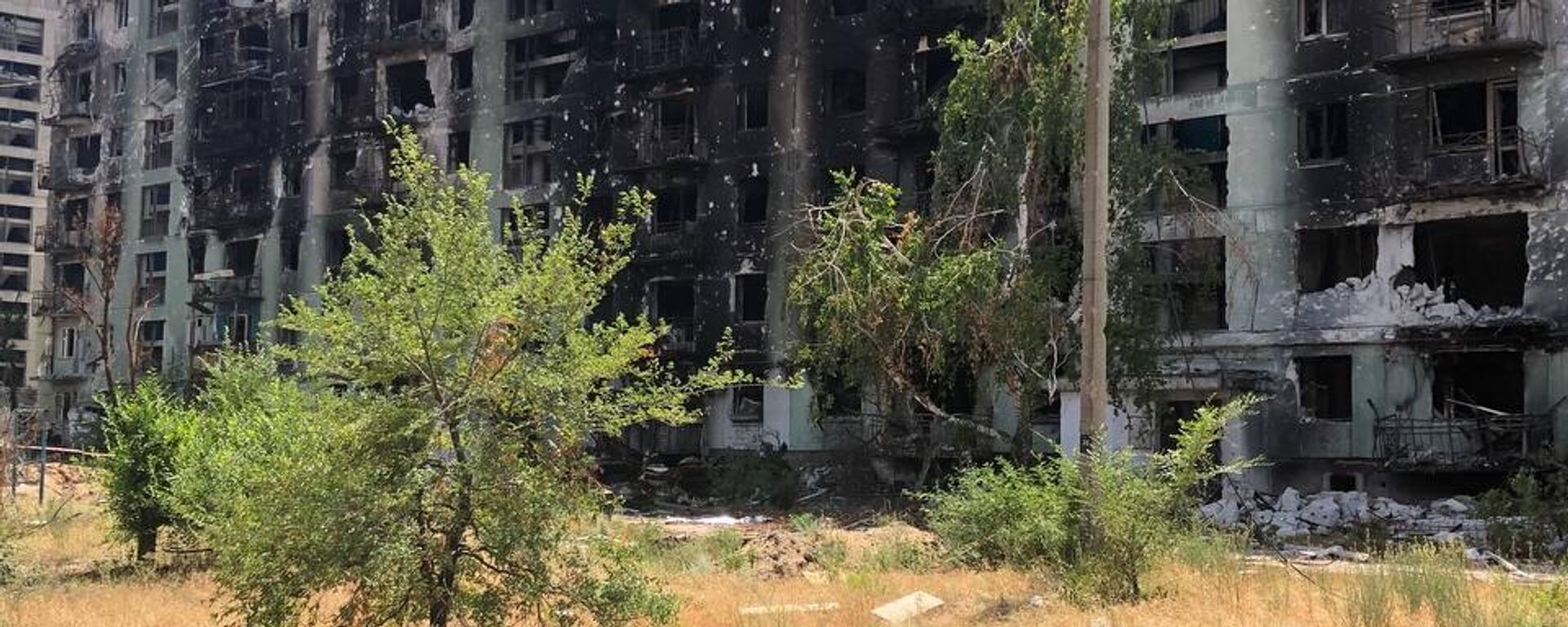Sputnik Correspondent: Donbass Farmers Unfazed by Sanctions, Will Sell Food to Friendly Countries
10:28 GMT 20.07.2022 (Updated: 10:48 GMT 20.07.2022)

© Sputnik / Ceyda Karan
Subscribe
While the West blames Russia for provoking a global food crisis, which the UN has actually been warning about since 2021, liberated areas in Donbass are engaged in agricultural production. Despite pressure from Kiev – which has cut off access to electricity and water, Donbass farmers are continuing their work, growing wheat first and foremost.
Together with an international group of journalists, we were able to visit the Kalmychanka farm enterprise, situated in the Starobelskiy district, Lugansk People’s Republic. In the Soviet period, the area was home to a massive collective farm, and today the enterprise continues to be considered one of the leading grain producers in the region.
Our guides explained that before the start of Russia’s special military operation, the grain grown here was sent to European countries. Today, thanks to sanctions, the new supply route will run through the territory of friendly countries.
Viktor Molotok, Kalmychanka’s director, told us that the farm did not suffer any damage in the course of fighting, thanks to which its 5,500 hectares of fields have been sowed with wheat, oats, sunflowers, and corn. Molotok says that all of the farm’s employees have remained on the job, no one has quit, and that salaries are being paid out in rubles, in accordance with LPR law.
A total of 82 people work at the farm, with 56 more to be hired at harvest time.
“All of the harvested grain will be placed in storage facilities. I think we’ll start selling in August-September, since right now our financial situation is stable; we can wait until prices rise and then we will go to market,” Molotok said.

Field of sunflowers at the Kalmychanka agricultural enterprise, Lugansk People's Republic.
© Sputnik / Ceyda Karan
The farm director explained that “today, Russia is buying wheat through the Starobelskiy grain elevator. The company Gelios Plyus from Rostov-on-Don transports the grain to ports, and from there it is sent to Turkey, Algeria, Syria, and Egypt – friendly countries that are ready to pay real money. There aren’t any problems with deliveries. For example, this year we sold Russian sunflower oil producers over 800 tons of sunflower seeds. We used the money we got to pay salaries, taxes, etc. Things are going well in our business.”
Commenting on Western sanctions and the refusal to purchase his farm’s output, Molotok didn’t seem fazed.
“That’s their decision, let them not buy it. Our enterprise is operating as normal. The special operation practically hasn’t affected our work, apart from the need to find new logistics markets to take our production. I think this question will be resolved in the near future,” he said.

Harvesting at the Kalmychanka farm, Lugansk People's Republic.
© Sputnik / Ceyda Karan
Today, Molotok explained, Kalmychanka is selling its production through Russia-based traders. “They buy from us directly, the documents are processed by the Customs Committee and the Chamber of Commerce and Industry; output is transported to Armavir, Russia, where sunflower oil plants are situated, and to other Russian cities.”



